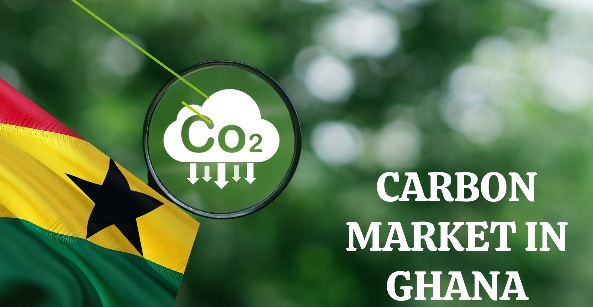
Ghana’s Carbon Market set to generate over $1 billion by 2030 – Report
Ghana’s Carbon Market is projected to attract over $1 billion in investments by 2030, creating jobs and driving the adoption of clean energy solutions, according to a new report from the Carbon Market Office (CMO).
The investments will stem from projects aimed at reducing greenhouse gas emissions, as well as from revenue generated through fees.
Carbon trading enables companies and countries to buy and sell carbon credits, which represent the reduction or removal of greenhouse gases like carbon dioxide (CO₂). One carbon credit equates to one tonne of CO₂ that has been reduced, removed, or avoided.
This system provides countries like Ghana with an opportunity to fund climate-friendly projects while cutting emissions.
Ghana’s Progress in Carbon Trading
Ghana has introduced policies and regulations to maximize the benefits of carbon trading. So far, 24 million metric tonnes of its 64 million metric tonnes of carbon credits have been made available for sale under Article 6.2 of the Paris Agreement.
As of December 2024, 70 projects have been submitted to the CMO for approval, with the aim of reducing emissions and promoting sustainable development in the country.
Among these projects, the clean cookstove initiative, which plans to distribute 9.1 million stoves by 2030, has been the most prominent, accounting for 26 of the proposals. Additionally, three projects focused on electric mobility aim to distribute 120,160 e-bikes and e-vehicles.
The report also highlighted that 15 of the proposed projects are centered on nature-based solutions, with others focusing on biochar, solar energy generation, wastewater treatment, and electric vehicles.
Ghana’s International Carbon Trading Agreements
Ghana has already signed agreements to sell carbon credits with Switzerland, Sweden, and Singapore. The Swiss agreement is currently being implemented, while talks with South Korea and Liechtenstein are ongoing.
According to the report, the carbon market is expected to bring in more investments, create job opportunities, and aid in Ghana’s fight against climate change. It will also encourage the adoption of cleaner technologies, such as improved cookstoves and electric vehicles.
With the right policies and investor support, Ghana is positioned to become a significant player in Africa’s carbon trading market.
In the latest Paris Agreement Article 6 Implementation Status Report, Ghana is recognized for its successful engagement with five acquiring parties, alongside other countries such as Guyana, Suriname, Switzerland, Thailand, and Vanuatu.
